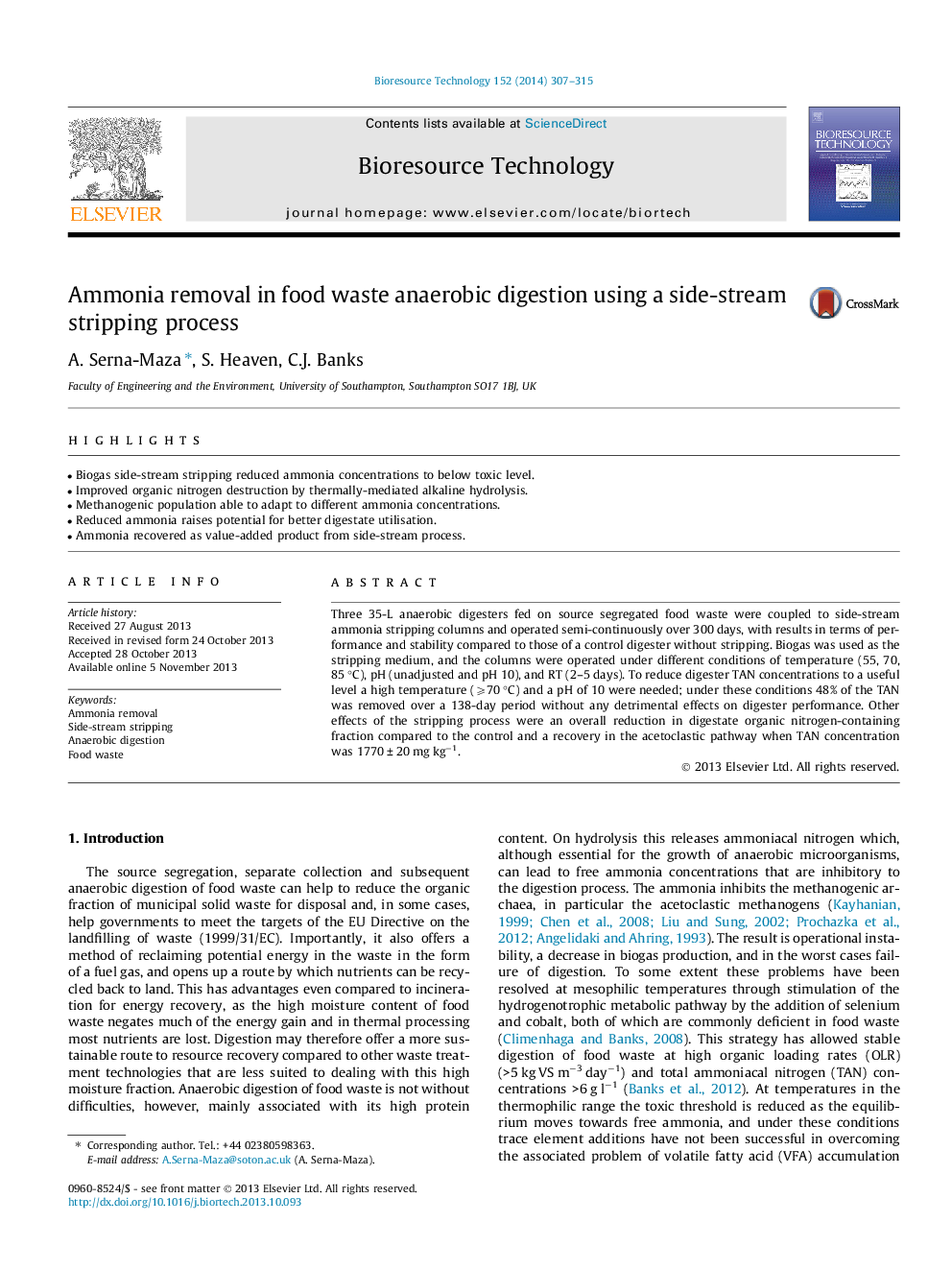| Article ID | Journal | Published Year | Pages | File Type |
|---|---|---|---|---|
| 7079177 | Bioresource Technology | 2014 | 9 Pages |
Abstract
Three 35-L anaerobic digesters fed on source segregated food waste were coupled to side-stream ammonia stripping columns and operated semi-continuously over 300 days, with results in terms of performance and stability compared to those of a control digester without stripping. Biogas was used as the stripping medium, and the columns were operated under different conditions of temperature (55, 70, 85 °C), pH (unadjusted and pH 10), and RT (2-5 days). To reduce digester TAN concentrations to a useful level a high temperature (⩾70 °C) and a pH of 10 were needed; under these conditions 48% of the TAN was removed over a 138-day period without any detrimental effects on digester performance. Other effects of the stripping process were an overall reduction in digestate organic nitrogen-containing fraction compared to the control and a recovery in the acetoclastic pathway when TAN concentration was 1770 ± 20 mg kgâ1.
Related Topics
Physical Sciences and Engineering
Chemical Engineering
Process Chemistry and Technology
Authors
A. Serna-Maza, S. Heaven, C.J. Banks,
